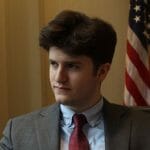Op-Ed: Censorship Spreading Faster than Coronavirus
It’s almost strange to consider how something that would otherwise be noncontroversial, dare I say forgettable, can be brought back to life like Frankenstein’s monster with nothing more than a bolt of lightning we like to call “backlash.”
By now, if you’ve spent even five minutes on any social media platform, odds are you have in some way, shape or form run into a post for the short documentary “Plandemic.”
Have I watched it? No, and I doubt many fire-breathing critics, slapshot pundits and drive-by commentators of the film have watched it either.
It’s a sad state of media when we learn to hate things we know nothing about because of whatever the echo chamber deems as heresy. However, the mainstream media may have caused a bigger problem for themselves and the pro-“lockdown for eternity” crowd simply by dedicating so much time to attacking this film.
“Plandemic” is a short documentary that features several doctors and health experts who attempt to convince viewers that many of the mainstream beliefs regarding what COVID-19 is and what the proper response to combat it should be are either completely incorrect or entirely exaggerated. Wherever you fall in terms of your opinion on that issue is entirely up to you, but the film has caused quite a stir nonetheless.
Even better, social media platforms (some may even call them publishers at the rate of which they are deeming content to be “wrongthink”) such as YouTube, Facebook and Twitter have gone out of their way to pull the film from being viewed in the future, despite already earning millions of views at the time of publishing, according to The Washington Times. If they didn’t want to create a martyr, they certainly did just that in the eyes of the anti-vax movement and the growing number of Americans who desperately want to return to work.
According to a statement provided by Facebook to The Washington Times and several other outlets, “Plandemic” “contains conspiracy theories and false claims about the coronavirus and COVID-19, the contagious disease it causes.” For instance, it is harmful to wear face masks and “if you’ve ever had a flu vaccine, you were injected with coronavirus.”
“Suggesting that wearing a mask can make you sick could lead to imminent harm, so we’re removing the video,” a Facebook spokesperson said.
Whether you agree with the premise of “Plandemic” or the actions of these platforms or not, recent history shows that in a world where people are restricted from getting access to information, these types of things find a way of earning a degree of validity, despite the context, in the eyes of ideological opposition.
In 2018, nearly every social media outlet and network dropped the conspiracy theorist Alex Jones. With this action, his Infowars app on the Apple App Store as well as Google Play shot up to the top 10 downloads in North America alone until the app was then pulled again. Whether you love Alex Jones or hate Alex Jones, universally deeming him as someone who must be removed from the public square at all costs only made him larger as a consequence.
People who may have seen themselves as on-the-fence supporters of Jones became vocal advocates, and longtime listeners became dedicated patrons.
Conservative gadflies on Twitter and Facebook were tired of being censored and limited in their ability to communicate, so they now thrive on right-leaning platforms such as the Parler app.
While we can argue on the merits of the arguments in terms of controversial issues, the path must be public discourse and debate, not outright telling people that they aren’t allowed to watch or listen to something because it might be dangerous; in the eyes of many in the public, all they hear is “you’re too stupid to make up your own mind.”
Now the little film that nobody knew about a week ago has been discussed everywhere from Fox News to CBS, giving it essentially millions of dollars in free marketing, even if the slant is a negative one. According to CBS, the actions taken by companies such as Twitter went beyond removing links to the movie; they are now trying to kill any online discussion of it whatsoever.
Twitter said “it’s blocking hashtags and search related to the video that include #Plandemic, #PlagueOfCorruption, and #Plandemicmovie,” CBS reported.
Now, many Americans who know of the film find themselves in a quagmire of a situation. Do they support the freedom of speech the filmmakers have and potentially be seen as condoning opinions they might not hold? Or do they kill any freedom of thought and expression in order to justify otherwise totalitarian actions by big tech and lawmakers?
Are we even talking about the facts behind the lockdown and the true nature of coronavirus? Or are we going after each other’s right to access the information we want to access, and hold the views we personally want to hold? Only you, the reader, can answer that question.
The views expressed in this opinion article are those of their author and are not necessarily either shared or endorsed by the owners of this website. If you are interested in contributing an Op-Ed to The Western Journal, you can learn about our submission guidelines and process here.
Truth and Accuracy
We are committed to truth and accuracy in all of our journalism. Read our editorial standards.












